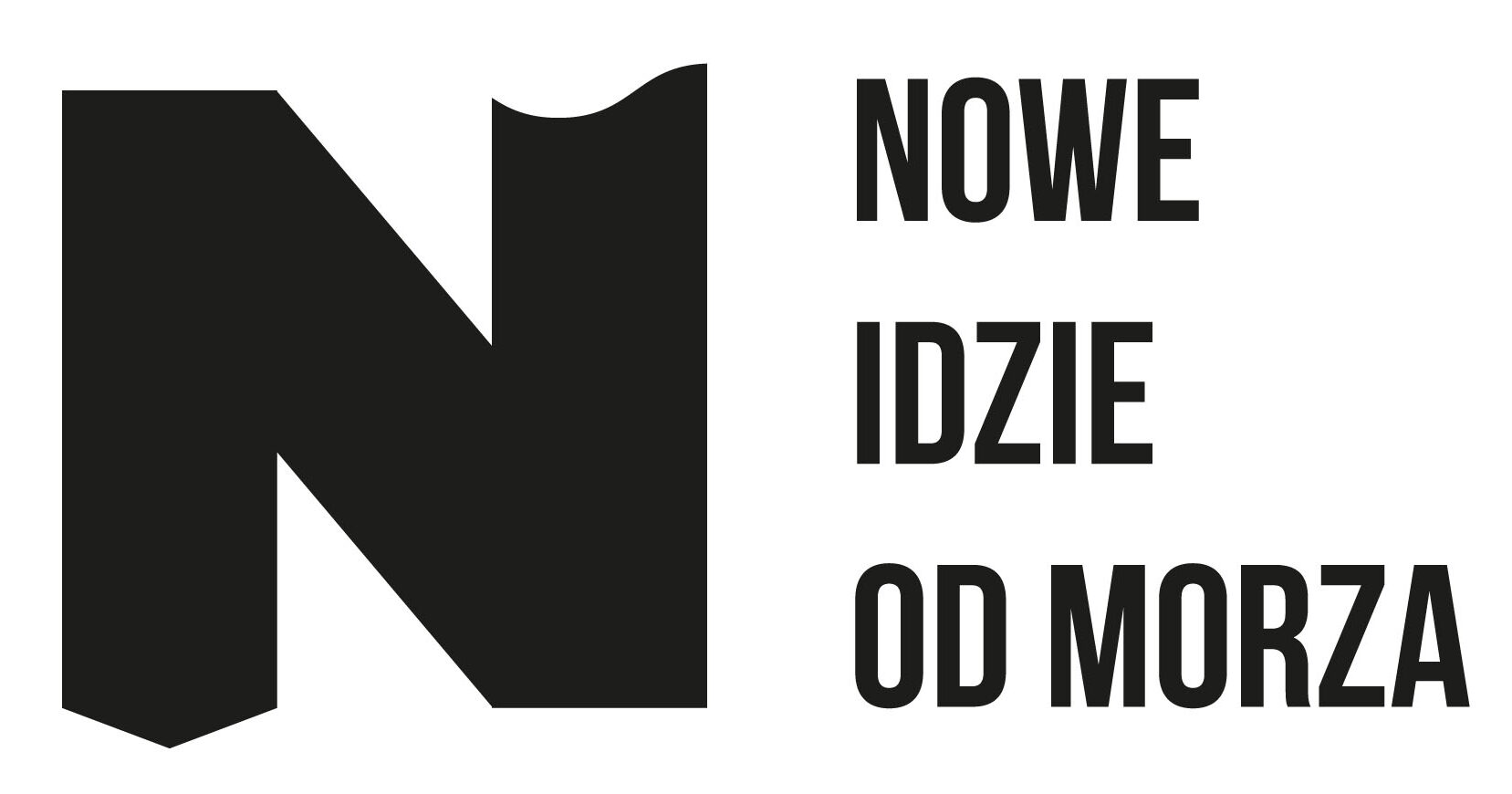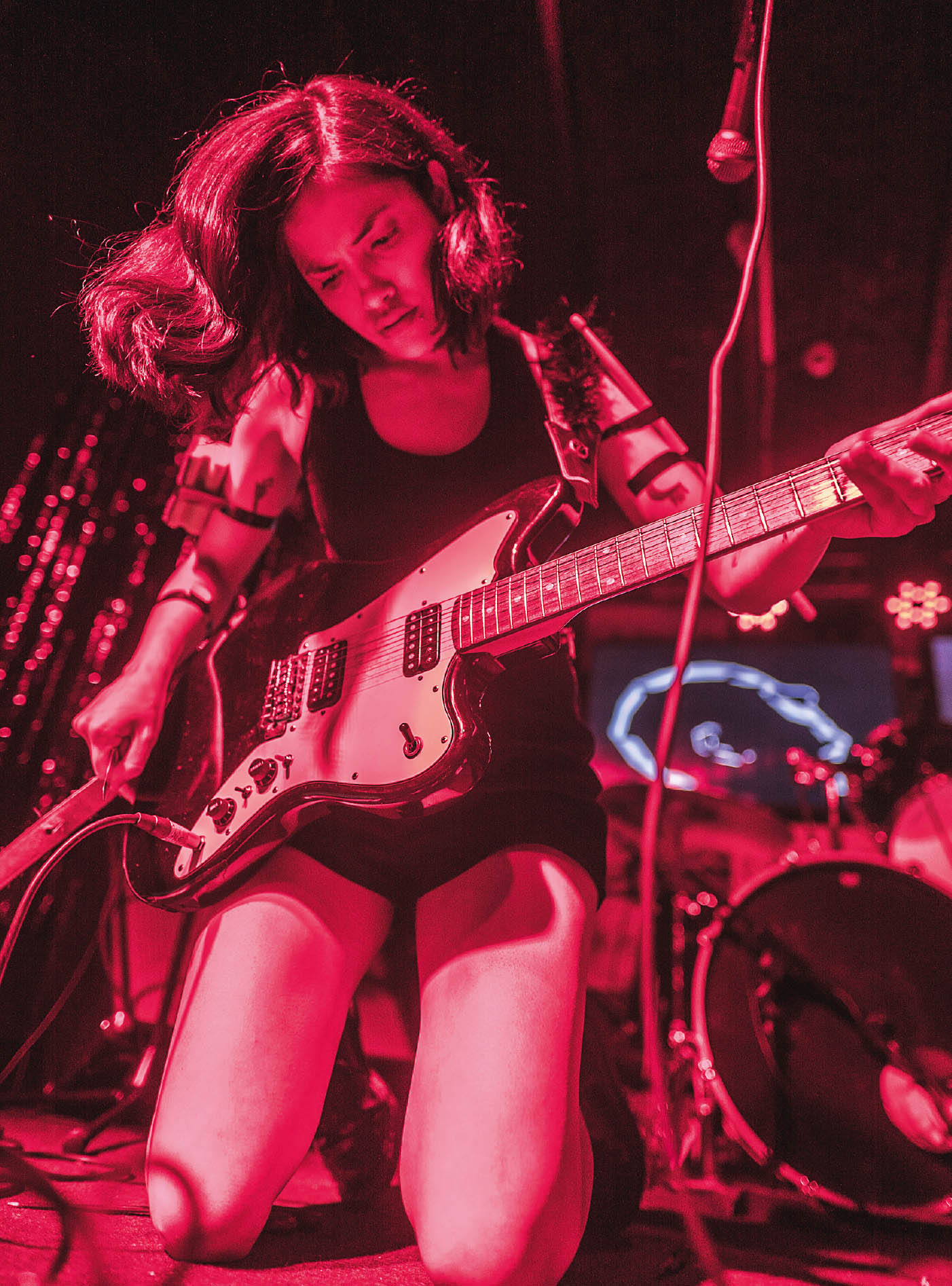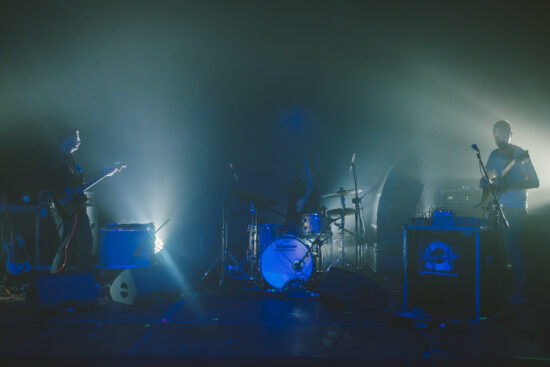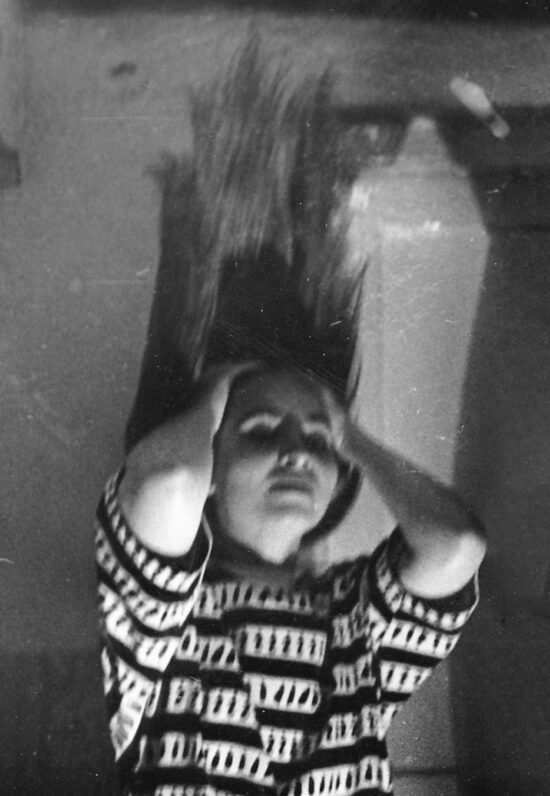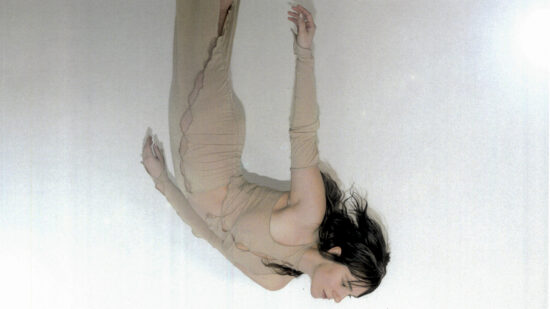From primitive improvisations, through post-punk melodies, prepared instrument to metal walls of sound. Welcome to the showcase of the so-called guitar music, which uses guitars, preferably in the least obvious way.
Translation: Aleksandra Szkudłapska
The ethos of a guitar player, who – bent over the instrument – stands on the stage with a hefty set of pedals and a wall of amps is a popular musical cliché. Not to mention the spasmatic solos – popification of the guitar – from which the genre can rarely liberate itself. As a result, guitar music is often pigeonholed, and artists using the instrument, forming part of the broadly understood guitar scene, hardly ever have something really fresh to offer. This is why I like to wander away from mainstream aesthetics to the periphery – where the perspective of the guitar, its sound, functions, and manner of composition are much broader. The guitar can still play centre stage, and not sound cliched – it’s no longer about the “rock edge”, but about a whole spectrum of the instrument’s possibilities hidden behind the wall of sound. This is the approach I’ve taken to the seven albums described below.
Ale Hop, Life of Insects, Buh Records
Alejandra Luciana Cárdenas started playing the guitar in the indiepop outfit Las Amigas de Nadie, but later strolled away from this path. Under the moniker of Ale Hop, she explores the boundaries of this instrument, often verging on sound art. The guitar plays a prominent part on Life of Insects, but this is just one of the elements of the album. The Peruvian-born and Berlin-based artist decided to craft a sonic concept of insect habitat, inspired by the insects she brought home while working on a film. Porcje Rosołowe once took a step in a similar direction, imitating the sounds of animals in a very minimalist manner, but Cárdenas chose to maximise this environment. There is a lot of glitch and industrial walls on the album (“Pollinators”) that bring to mind the Austrians from Radian. The artist cumulates sounds, combining metallic, quasi-percussional layers (sometimes even with a light beat, like in “Someday We’ll Dance Again”) with dense bass. As a result, we get a futuristic vision of insect sound, at times verging on lyricism (“The Pearl Diver”), at times deconstructed. The whole veers towards sound design, meticulous post-production, and focus on details.This is a pared-down, narratively coherent album – with a cherry on top in the form of the original video to “Jungle Depredation”, the closing piece, which proves that this kind of music may be paired with an attractive visual counterpart.
Yannis Kyriakides & Andy Moor, Pavilion, Unsounds
You might know Andy Moor from The Ex, but this is just the tip of the iceberg in terms of his musical interests. Moore launched the Unsounds label with Yannis Kyriakides, and they’ve just released their fifth album together. In their explorations so far, they’ve reached for various methods and eras – in 2010 they released an album based on the 16th– and 17th-century composition of La Folia and the amazing Rebetika, where they interpreted urban Greek music. Pavilion is in stark contrast to this very dynamic, slightly ballad-like record – it’s calmer, more abstract and static.Moor’s guitar is lyrical and fragmented, while Kyriakides reaches for the Moog, Buchla or Vermona synths. The result is a selection from nine hours of recordings done in the course of three days in the French pavilion at the 2017 Venice Biennale. We get 50 minutes of delicate, subtle, cut-up music, a symbiosis of lyrical guitar and cool electronics. The opening “Camer” attracts the attention with dehumanised electronics in the background and emotional guitar in the foreground. In “Dedalo”, on the other hand, looped parts of the instrument serve as the basis for Kyriakides’s quasi-beat elements. The whole album is a mosaic of sound elements assembled with perfect sense – this is not just an example of attentive improvisation, but also a skilful selection of material based on counterpoints. An open, intuitive, but also very poetic cooperation, coherently showing the duo’s development and musical explorations.
Dwarfs of East Agouza, The Green Dogs of Dahshur, Akuphone
The American-Egyptian trio with the amazing Sam Shalabi (Land of Kush), Maurice Louca and Alan Bishop (Sun City Girls) has been active for over six years now, sharing between them two guitars, electronics, the oud and saxophone.Back on Bes, the guitars came to the fore against the backdrop of Louca’s hypnotic rhythms, but with The Green Dogs of Dahshur, they often emerge in surprising ways. Like the cascade of sounds in “Black Sun of Intent” or in a more static way, like in “Organism 46-B”, with Bishop’s sonorist solos and water sounds that resemble field recordings. Sam Shalabi gives a real tour de force of the instrument, brilliantly dialoguing with Bishop in the middle of “Bent, Black and Red”. Their third album leaves more room for abstraction, open forms and departing from clear-cut structures – it’s not as rhythmical as the debut or as noisy as Rats Don’t Eat Synthesizers from two years ago. Here they seem to be listening to each other the most, and taking a holistic approach to music, thanks to which the album sounds very coherent from start to finish, not like a wild jam. The trio contemplate music, exchanging moves that take on a mantra-like form. It could seem that the band are following a carefully crafted formula, but The Green Dogs of Dahshur is surprising enough to make me wonder whether this is not their best album to date.
Handle, In Threes, Upset the Rhythm/Maternal Voice
While Handle are informed by no wave and post-punk, they’re not using an electric guitar in their line-up. There is the bass, though, as well as their whole manner of playing that can resemble guitar sounds, plus keyboards and drums.To me, though, they fit this style that’s usually associated with guitars – edgy, fleshy, ecstatic. Two-thirds of the band play in D.U.D.S, and the cosmic vocals are supplemented by Leo Hermitt. Their hypnotic music, incessant pulsation, distinctive bass lines and polyrhythmic percussion instruments provide a fantastic background for synthesiser melodies and ornaments. Add lyrical texts shouted against the backdrop of broken, dance-punk forms that usually last 2-3 minutes at most. The trio suspended between Manchester, London and Brussels make uncompromising, original, dirty music, seemingly unbridled and chaos-ridden, yet with an irresistible hit quality. The group plays in the minimalist vein, leaving ample room for each of the instruments, brilliantly maintaining narrative tension, and yet able to play with the sound in a light-hearted, frivolous manner. In Threes might just be music for our times – quivering, convulsive, spurted out towards the listener. At the same time, though, it brings a certain katharsis, translating the experience of our difficult reality into the language of music.
Gentle Stranger, Love and Unlearn, PRAH
The next trio, this time only London-based, juggles a much more extensive instrumentation. From behind the keyboards, trombone, accordion, and juicy percussion instruments, we may also single out the guitar sound. Gentle Stranger act like a travelling troupe, calling themselves post-clowns. However, instead of screwing around, they can be lyrical too, but this is also something you have to fish out from their multitude of ideas. The minute-long “Love and Unbass” is a nod towards rock’n’roll, “Dunce Disco Anthem” looks at dance music through a distorting mirror, while “Basic Stretches” is a folk tune with brass ornamentation. Frank Zappa and Captain Beefheart could be their godfathers, but let’s take a look at those guitars, shall we. In “Hurry Horse”, they begin with a deft riff to move on with playing with the instrument’s texture in the second half. The lyrical “Two to Carry” is based on singing and drumming, with delicate strokes of the strings coming to light towards the end. One might have a feel that Gentle Stranger’s absurd is drowned out by the overall chaos, but – contrary to appearances – this is a skilfully crafted mosaic, combining elements of folk, rock, jazz, shanties, trippy electronics and no wave. And when you think this is it, they serve the charming and concise “Obvious As Snow” at the end. I’m sold on this troupe of clowns, I’d really like to see them live.
Kostkiewicz/Rychlicki, Zapis, Maternal Voice/Absolute Fiction
Łukasz Rychlicki and Hubert Kostkiewicz have both formed part of the Polish guitar scene for quite a while now. The former developed his musical language with Kristen, but now mostly focuses on Lotto, while the latter quickly crystallized his sound with The Kurws. Both bands have a characteristic, unique sound and an unorthodox take on the role of guitars. On Zapis, the duo is alone with their instruments, and we could easily fit them in the Three Lobed Recordings roster with Tom Carter or Daniel Bachman at the front. Kostkiewicz and Rychlicki give us thirty minutes of abstract, yet fleshy sounds (“Seventh Pressings” being a brilliant example), oneiric blues-folk variations (“Sunrise with Steel Objects”) or drone-like, textural case studies of the instrument (“How to Draw Water”). The guitar phrases grow dense, the duo sometimes use details, delicately veering towards melodious, thick resonances, but above all they explore guitar primitivism. There is a concise lightness to this abstraction, there is a highly specific vision of music: evocative, persistently exploring the instrument’s sound to the core. They start out from the position of guitar ethos, only to depart from it with each minute, ending up somewhere deep in the periphery – when they sound their most interesting.
Deafkids & Petbrick, Deafbrick, Rocket Recordings
Last year Igor Cavalera, founder of the legendary Sepultura, debuted with his new project Petbrick. Now, though, he crossed paths with one of the best bands from the country, Deafkids, about whose amazing album MetaprogramaçãoI wrote in 2019. Petbrick combines industrial sounds with synthesiser walls of sound, and Deafkids explore the boundaries between punk and avant-garde. A combination of these elements yields a mighty set of compositions built based on mighty-sounding guitar walls, indigenous percussion instruments, and artificial parts of synthesisers and beats. The sonic landscape is buzzing with guitar noise that keeps accumulating. Take the two-minute “Força Bruta”, where minced guitars follow Cavalera’s beats at breakneck speed. Deafkids are a great match here with their post-hardcore aesthetics. “The Menace of the Dark Polar Night” offers a calmer, powerful counterpoint, where futurist electronics, deformed in the second part of the track, come to the fore. “Máquina Obsessivo-Compulsiva” and “O Antropoceno” focus on the drums, there’s also room for a hypertextual reference to the traditions of the genre, when the quintet reinterprets Discharge’s “Free Speech For The Dumb”. And this is all locked in the trance hurricane in the form of two incarnations of “Primeval”. A very intense, yet captivating album.
